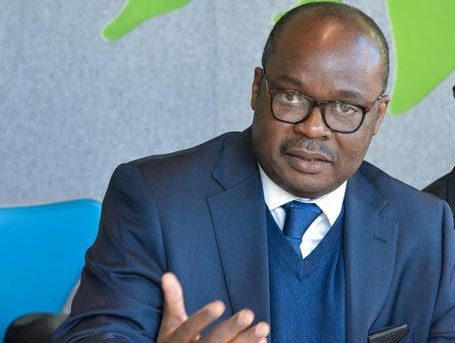The Bank of Ghana (BoG) has responded to claims made by former President of the Volta Regional House of Chief, Togbe Afede XIV, to the effect that interest rate in Ghana is high, as erroneous and misleading.
According to the Central Bank, some issues raised by Togbe Afede XIV about the bank’s conduct of monetary policy and its governance structure is spurious.
“This is where the incidence on the fiscal is critical and why the Government of Ghana will have to pay a higher interest rate to borrow to service debt compared to the UK. The interest rate floor of the policy corridor are completely different for the two economies. And for that reason, the rate at which the Bank of Ghana’s Monetary Policy rate will be effective in helping manage liquidity and achieve the price stability objective, is constrained by the debt service cost and public sector borrowing requirement dynamics on interest rates”, it pointed out in a statement.
“It is therefore completely erroneous and misleading and spurious analysis to simplify the monetary policy stances comparison with just the overall debt-to-GDP comparison of two completely different economies with different fundamentals”, it added.
The Bank of Ghana further explained that the Ghanaian currency is not a reserve currency as compared to the United Kingdom’s Pounds Sterling which means sovereigns and central banks are keen on holding such assets as part of their reserves.
Togbe Afede XIV also said Ghana would have to pay premiums resulting in the issuance of debt at a higher cost because the cedi is not convertible.
But the Bank of Ghana argued that ”it is important to bring other perspectives in context to show why the analysis in the said article can at best be generously described as spurious. It is also important to note that the UK debt is highly printable.”
“For this very reason, the UK Government is able to issue debt at a lower cost to support monetary policy conduct. This argument does not hold for only the Pounds Sterling but for all SDR basket of currencies like the US dollar, Japanese Yen, the Euro etc”.
It explained further than “the Ghana Cedi is not yet convertible even in the sub region and let alone considered as a reserve currency. What this means is that in order to attract inflows Ghana will have to pay a premium, resulting in the issuance of debt at a higher cost”.
Latest Stories
-
Managing Prediabetes with the Help of a Dietitian
2 mins -
Joy FM listeners criticise Achiase Commanding Officer’s election comment
23 mins -
Legal Aid Commission employees threaten strike over poor working conditions
25 mins -
Ghana ranked 7th globally as biggest beneficiary of World Bank funding
35 mins -
IMF board to disburse $360m to Ghana in December after third review
40 mins -
Former Bono Regional NPP organiser donates 13 motorbikes to 12 constituencies
45 mins -
Securities industry: Assets under management estimated at GH¢81.7bn in quarter 3, 2024
50 mins -
Gold Fields Ghana Foundation challenges graduates to maximise benefits of community apprenticeship programme
2 hours -
GBC accuses Deputy Information Minister Sylvester Tetteh of demolishing its bungalow illegally
3 hours -
Boost for education as government commissions 80 projects
3 hours -
NAPO commissions library to honour Atta-Mills’ memory
3 hours -
OmniBSIC Bank champions health and wellness with thriving community walk
3 hours -
Kora Wearables unveils Neo: The Ultimate Smartwatch for Ghana’s tech-savvy and health-conscious users
3 hours -
NDC supports Dampare’s ‘no guns at polling stations’ directive
3 hours -
Police officer interdicted after video of assault goes viral
3 hours

